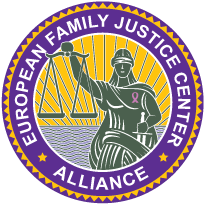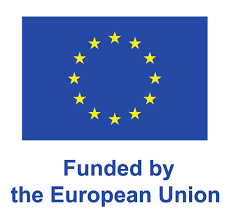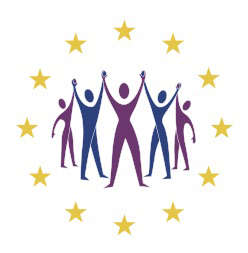7th international EFJCA Conference
Program Day 2
Tuesday 7.10.25 - 9.30-17.30 (Greek Time), Heraklion, Aquila Atlantis hotel
09.30
Registration
10.00
Opening
by Nicholas Spetsidis, UWAH – Pascale Franck and Bert Groen, EFJCA
10.10
Empowering women through social awareness, care and solidarity programs
Vicky Arali is the Founder & Communications Manager of the Non-Profit Company Immortaliting, which implements actions to support vulnerable groups. As a single parent with a deep understanding of the challenges faced by mothers without a support network, she has dedicated her work to empowering other women through social awareness, care and solidarity programs. With the aim of combating gender-based violence and strengthening single-parent families, she actively contributes to the creation of a more just and inclusive society.
10.40
Walking the Extra Mile for Victims
Valerie Swennen, police detective with extensive experience in cases of gender-based and domestic violence, serves as the liaison officer for the Flemish 'Veilig Huizen' and is a dedicated trainer with the EFJCA. Valerie highlights the critical need for a multidisciplinary approach and urges systems to adapt to the needs of victims – not the other way around. She speaks to the profound impact of coercive control and intimate terrorism on both adults and children, and underlines the importance of a truly victim-centered response. With conviction and compassion, she calls on all professionals to go that extra mile – because only then can we truly make a difference in the lives of those affected.
11.10
Coffee break
11.40
Information Sharing in Family Justice Centers and Multidisciplinary Models
Effective information sharing is a cornerstone of successful multidisciplinary collaboration in the response to gender-based and domestic violence. Berte Van Heemst, Prosecutor at the Public Prosecutor's Office in Rotterdam, and Davy Simons, strategic coordinator of the City of Antwerp at the FJC Veilig Huis in Antwerp, share their experiences and insights from the Netherlands and Belgium. The speakers will explore how information sharing is organized within their respective systems, including legal frameworks, protocols, and trust-building between partners.
12.30
Lunch
14.00
Risk Assessment and Digital Tools in Practice
This session explores how digital platforms support risk assessment and case management in domestic and gender-based violence. Nienke Scholten (Belgium), Strategic Advisor Police, Prosecution and Intersectoral Cooperation of the department, will present the WIDA-system, a brand-new model designed to improve interagency collaboration in the approach of gender-based violence and domestic violence in Flanders. Leticia Matarranz, inspector of the Spanish national police, head of the VioGén System Service within the Secretariat of State for Security at the Spanish Ministry of the Interior will introduce VioGén, the Spanish national tool for risk assessment and victim protection.
14.40
Panel
Q&A with the speakers of the speeches about Information sharing, Risk assessment and digital tools, led bij Bert Groen, EFJCA
15.10
Coffee break
15.40
Voices in the FJCs and Related Models
Survivors’ voices are essential in shaping effective responses to gender-based and domestic violence. In this session, Ingrid Vermeiren en Triene-Mie Lecompte will speak from their lived experience about what is truly needed to stop the violence and support healing. The session will also introduce the Voices Committee of the EFJCA, an initiative that centers survivor perspectives in policy, practice, and evaluation. Participants will be encouraged to integrate survivor-led structures into their local multidisciplinary work, as a powerful step toward more responsive and impactful services.
16.10
Trauma-Informed Care and the Pitfall of Victim-Blaming
Sofia Thanasoula explores the principles of trauma-informed care in the context of gender-based and domestic violence. Her speech highlights how professionals can better understand and respond to victims’ needs, while avoiding the common trap of victim-blaming. A powerful call to shift systems and practices toward empathy, safety, and true support.
16.40
The Hidden Force for Change: Why the Istanbul Convention Matters here and now Understanding the power of the Council of Europe’s Convention to combat gender-based violence, and how it can guide local action
Discover how the Istanbul Convention shapes policies, protects victims, and holds governments accountable. Whether you're new to the Convention or already familiar, this session explores its real-life impact – from European frameworks to practical relevance in local communities.
Panel with Grevio members Laura Albu (Romania), Pille Tsopp-Pagan (Estonia), Maria-Andriani Kostopoulou (Greece), Copa member Marijke Weewauters (Belgium). Moderator: Pascale Franck (Grevio member and vice-president EFJCA).
17.10
Closure session
by Nicholas Spetsidis, UWAH – Pascale Franck and Bert Groen, EFJCA



